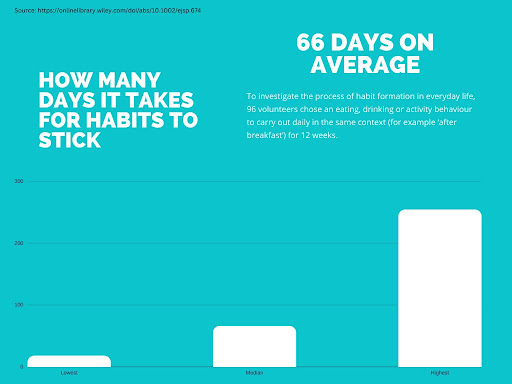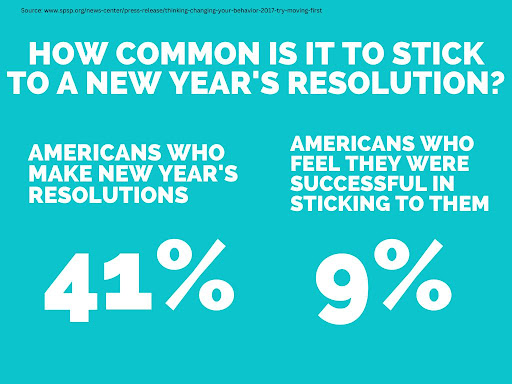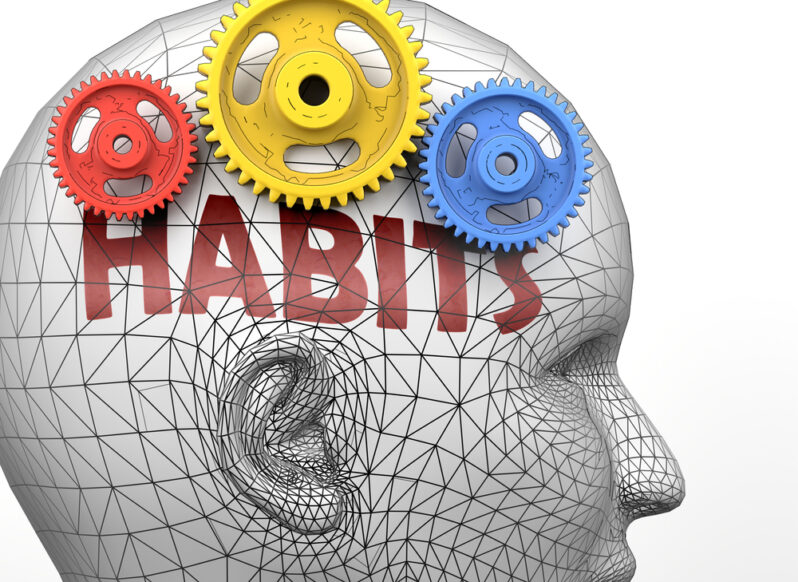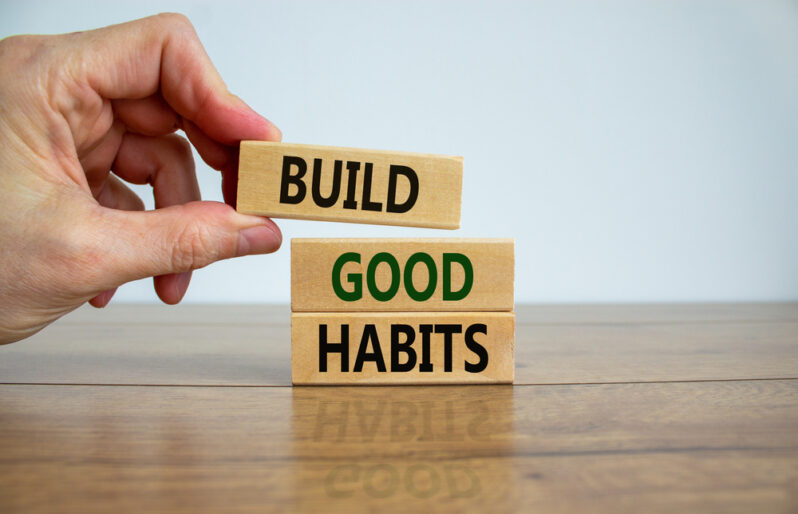Humans are like clocks: we follow a rhythm. Often we sleep, eat and work at the same time of day; the same goes for healthy habits.
Think of habits as deliberately setting yourself on autopilot: deliberately setting cues to you can carry out activities–like household chores, exercise, healthy eating, and work–with relative ease.
Although it might seem difficult at first, establishing a healthy habit routine is simple with a small amount of initial discipline. If you follow these tips, you’ll be well on your way to achieving your best self.
 Photo credit: udra11/Shutterstock
Photo credit: udra11/Shutterstock
Good habits to have include:
-
Exercising regularly
-
Eating healthy
-
Drinking more water
-
Learning a new skill or language
-
Reading more
Why healthy habits are fundamental to achieving long-term goals
As the year draws to a close, the new year is often a time of reflection. Perhaps you didn't achieve what you wanted this year, or maybe you struggled to stick with the news year's resolution you were so eager to achieve just 11 months ago. Whatever you feel when reflecting on the past year, there’s always time to change yourself for the better.
 Photo credit: GoodIdeas/Shutterstock
Photo credit: GoodIdeas/Shutterstock
Habits are the first step in achieving your goals. “Every action you take is a vote for the type of person you wish to become. No single instance will transform your beliefs, but as the votes build up, so does the evidence of your new identity,” James Clear, author of Atomic Habits: An Easy & Proven Way to Build Good Habits & Break Bad Ones, writes.
How to create good habits you can actually stick to
Whether it’s eating healthy, being more productive, or getting more exercise, here’s how to establish good habits that actually stick.
Be specific (and realistic) with the goals you’re setting.
The first–and, arguably, most important–aspect of establishing healthy habits is to set achievable, specific goals that you are able to measure day-to-day. Research has shown that specific habit goals are much more effective than vague objectives.
Take “I will run regularly,” for example–this is too abstract of a measure to assess when you reflect on how well you’re sticking to your targets. How “regularly” will you run? Daily? Weekly? How long will you be running, and at what pace? Establishing units for your healthy habit goals will help you in the long run and allow you to analyse your progress.
 Photo credit: Phuttharak/Shutterstock
Photo credit: Phuttharak/Shutterstock
The same goes for being over-ambitious, or just plain unrealistic goals, with the goals you’re setting. If you’re new to running, for example, it will be difficult to regularly achieve the same targets a professional runner might set themselves. In other words, make sure you’re realistic about yourself and what you can achieve within a specific timeframe.
This isn’t necessarily a negative: you can always start small and gradually work yourself up to more ambitious goals, it just minimises the chance of burnout–which would be a detriment to your habits in the long run.
Whatever you do, make it fun.
This is another important step to creating good habits that often get missed: sticking to any healthy habit will be difficult if you don’t actually enjoy it. Whenever we task ourselves with building a new habit, most of us overestimate our willpower and set course for the most efficient path to achieving our end goal.
 Photo credit: Ground Picture/Shutterstock
Photo credit: Ground Picture/Shutterstock
Although this might seem logical at first, it can actually make it harder, in the long run, to stick to a good habit. Research has shown that you’ll persist longer–and achieve more down the line– if you focus on finding ways to make a goal you’re pursuing enjoyable.
Repetition is key when forming healthy habits–something we’ll explore further down in this list–however, establishing activities that don’t require as much willpower, because you actually enjoy doing them, can make repeating habits less tiresome. If your goal is to exercise more regularly, why not take up a new sport like skateboarding or climbing? If you’re a sociable person, try starting a team sport or finding a gym buddy.
Timing, timing, timing
Routine and habits go hand-in-hand, which is why you should keep in mind the timings of your habits, and try to slip them into your routine so they are adopted easier into your daily life. Scientists have proved that you’re more likely to adopt healthy habits regularly if you’re cued to do it.
In other words, timing is everything. Make sure you carefully map out your habits to be associated with cues in your daily life, for instance, eating fruit after your finish lunch or going for a run once you finish your workday. Soon enough, the healthy habit will be second nature in your route.

A study conducted at University College London proved this phenomenon, showing that the median time it took to establish a habit, when cued with a daily task, was just 66 days!
Don’t overthink failure
Although self-help books can make forming good habit sound easy, the truth is, it’s actually pretty difficult to stick to them. “Keeping behaviour changes long enough to experience the benefits is incredibly hard,” Dr Donald Edomndson, principal investigator of the Resouce and Coordination Centre for NIH Science of Behaviour Change, told the National Institute on Ageing.

The data backs this up, too: of the 41 per cent of Americans who make New Year’s resolutions, only 9 per cent of them are successful in sticking to them. This shouldn't put you off attempting to establish healthy habits, but it’s also an important point to keep in mind.
Go easy on yourself: failure is likely part of the process. If you forget to stick to a habit one day, don’t let that deter you from your final goal. Success is about not giving up in spite of rejection and failure–in other words, keep the big picture in mind, and don’t let small failures set you off course to your final goals.
In time good habits will become second nature
 Photo credit: GoodIdeas/Shutterstock
Photo credit: GoodIdeas/Shutterstock
Establishing good habits isn't easy. But with a thought-out plan, some prior preparation, and dedication, you can incorporate healthy habits into your routine to help you achieve long-term goals. It’s a long road to establishing healthy habits, but with every action you take, your journey to achieving good habits becomes easier. Soon enough, that morning run will be like second nature. We hope these tips can help you become a better version of yourself, one step at a time.


